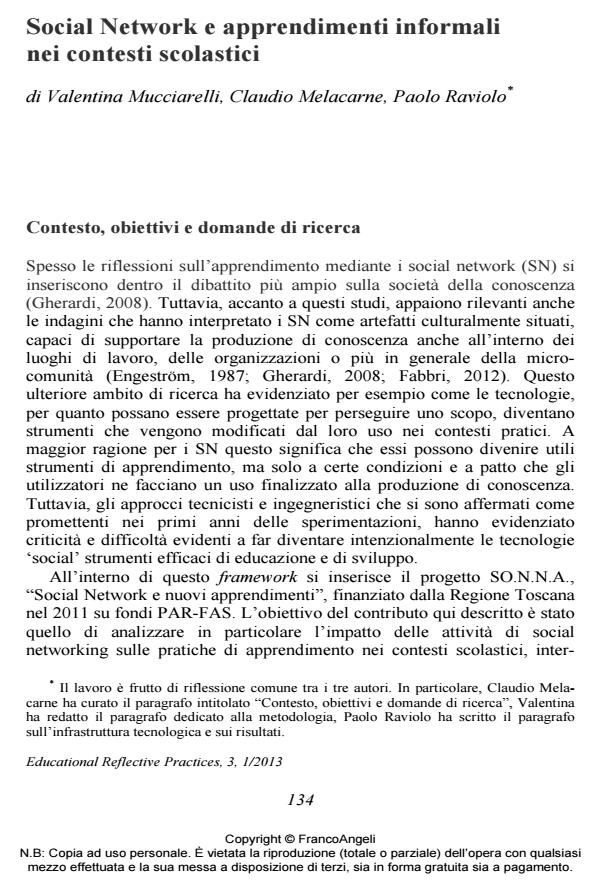Social Network e apprendimenti informali nei contesti scolastici
Titolo Rivista EDUCATIONAL REFLECTIVE PRACTICES
Autori/Curatori Valentina Mucciarelli, Claudio Melacarne, Paolo Raviolo
Anno di pubblicazione 2013 Fascicolo 2013/1
Lingua Inglese Numero pagine 9 P. 134-142 Dimensione file 153 KB
DOI 10.3280/ERP2013-001010
Il DOI è il codice a barre della proprietà intellettuale: per saperne di più
clicca qui
Qui sotto puoi vedere in anteprima la prima pagina di questo articolo.
Se questo articolo ti interessa, lo puoi acquistare (e scaricare in formato pdf) seguendo le facili indicazioni per acquistare il download credit. Acquista Download Credits per scaricare questo Articolo in formato PDF

FrancoAngeli è membro della Publishers International Linking Association, Inc (PILA), associazione indipendente e non profit per facilitare (attraverso i servizi tecnologici implementati da CrossRef.org) l’accesso degli studiosi ai contenuti digitali nelle pubblicazioni professionali e scientifiche.
We present here the structure and some outcomes from the Sonna project (Social Network e Nuovi Apprendimenti). The project is designed to study the impact of on-line social media (S.M.) environment on learning processes of young and adult, in schools and professional environments. The research first phase is focused on the use of S.M. in everiday life and some promising models to understand their impact on learning. In the second phase field experimentation are conducted in schools and professional environments througout an on-line research platform designed and developed specifically for this research. The last part of the research will be focused on the analisys of qualitative and quantitative data to validate the hypotesys and models defined in the beghinning.
Valentina Mucciarelli, Claudio Melacarne, Paolo Raviolo, Social Network e apprendimenti informali nei contesti scolastici in "EDUCATIONAL REFLECTIVE PRACTICES" 1/2013, pp 134-142, DOI: 10.3280/ERP2013-001010